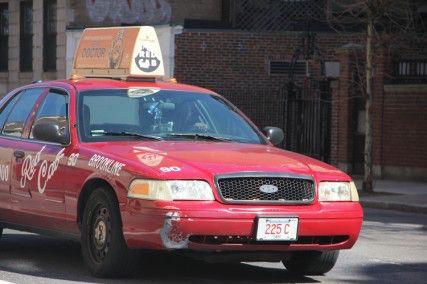
Boston Mayor Thomas Menino ordered an extensive review of the city’s taxi industry Monday after The Boston Globe Spotlight Team released a report documenting a failed industry with years of abuse of cab drivers by owners.
After a nine-month investigation, the Spotlight team reported Sunday that drivers would sometimes have to pay bribes to get keys to their cabs while cab owners violated Boston Police Department regulations.
Monday, Menino called for an independent review of the entire taxi industry to be conducted by a third party, according to officials at the mayor’s office.
The review will include a report with recommendations to focus on unresolved problems between cab drivers and the owners, city growth and demand for taxis, the growth of technology and impacts of the industry and the overall management of the Hackney Division in the police department, according to mayor’s office officials.
The Hackney Division oversees the city’s taxis, and Mark Cohen, civilian director of licensing for the Police Department, has overseen the industry since the 1980s. It is unclear whether Cohen will remain in the position.
“The first change [for the industry] needs to be the removal of Mark Cohen because he is one of the fundamental problems of the industry right now,” said Donna Blythe-Shaw, staff representative for the United Steelworkers and Boston Taxi Drivers Association.
Blythe-Shaw said she has been asking the mayor and legislature to reform the industry for many years now and wants Menino to establish a better licensing division.
“The second [change] is to establish a legitimate licensing division made up of representatives from communities and drivers’ unions who would be responsible for regulation, oversight, auditing and adherence to proper business management,” she said.
Blythe-Shaw said Menino should sign an executive order changing the independent contract of cab companies to employee status to allow them to receive work benefits.
Mass. State Treasurer Steven Grossman filed legislation to end the program because only a few entities can afford the cost and upkeep of a taxi system.
“All taxis should have proper insurance,” Grossman said in a statement Wednesday. “And we have filed legislation to eliminate the self insurance program because it is entirely inadequate.”
He proposed that the required $20,000 in coverage is insufficient to cover people’s injuries no matter if it is paid through traditional insurance policies or self-insurance, according to the Motor Vehicles and Aircraft legislation.
Boston cabbies sued taxi owners Feb. 12 for allegedly denying them fair wages and benefits. Edward Tutunjian, a cab owner, said, in the case, that taxi drivers are independent businessmen and he does not get involved in how much money they make in a shift in relation to how much the drivers lease him.
“I don’t get involved about how much he is making. They pay the lease amount. I don’t go into specifics. It is their business. They run their own business. I don’t go into details on how much they make,” Tutunjian said in a transcript of the case provided by the Spotlight Team’s report.
Blythe-Shaw said she is glad Menino is finally reviewing the corrupt taxi industry.
“If Menino wants to help, that’s [the review’s suggestions] what he needs to do,” she said. “It’s a lopsided system and it needs to end.”
This is an account occasionally used by the Daily Free Press editors to post archived posts from previous iterations of the site or otherwise for special circumstance publications. See authorship info on the byline at the top of the page.




Next time you use a picture to go with a story why not use a boston cab not a brookline cab picture
$20,000 is too low, considering the virtual perpetual exposure of a taxicab to the risks of the road.
$1,000,000 is too low considering the risk of head injury from partition impact.
The minimum Comp. Liability coverage should be raised to a higher rate because of higher exposure.
Let us not forget to eliminate the illegal partition hazards that drive up losses, so we don’t have to cover for $1,000,000 per crash.